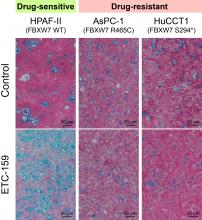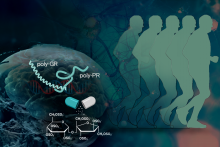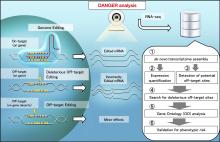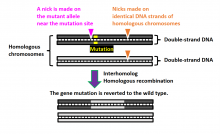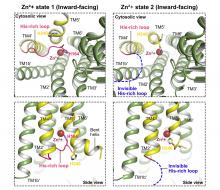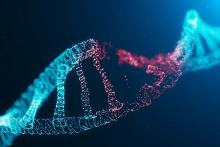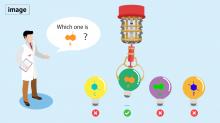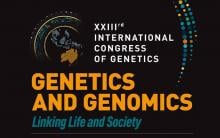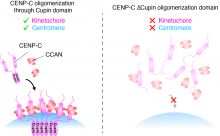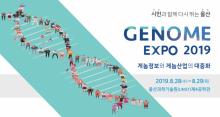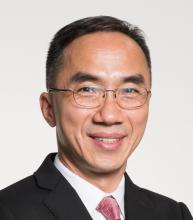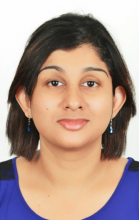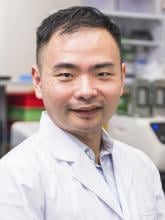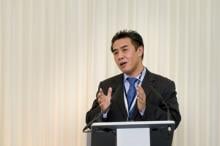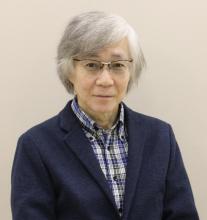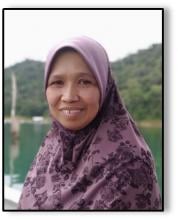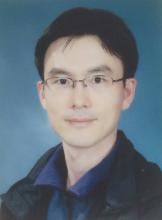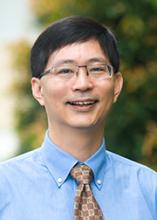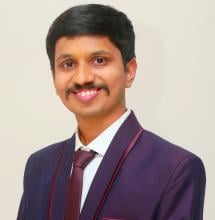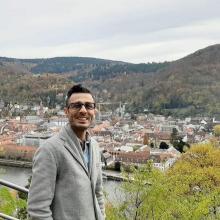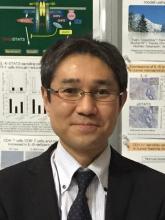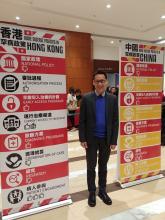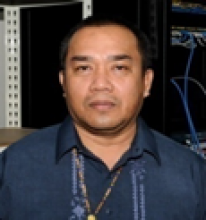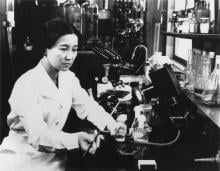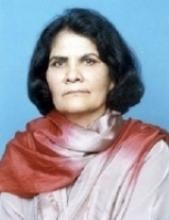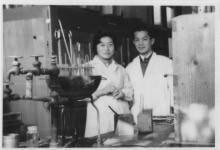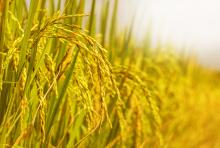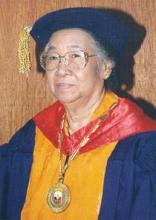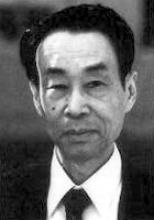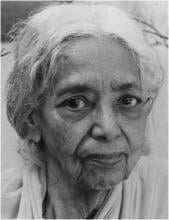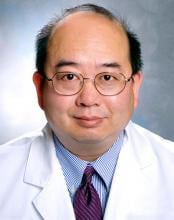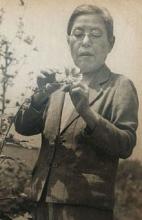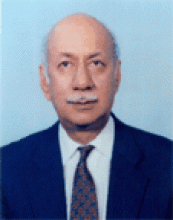Genetics
News
11 Apr 2024
Duke-NUS study reveals why some pancreatic and colorectal tumours resist targeted anti-Wnt drugs and suggests how to overcome it, offering new hope to patients with fully treatment-resistant cancers
08 Apr 2024
Genetic analysis finds evidence suggesting that acoustic fat bodies in the heads of toothed whales were once the muscles and bone marrow of the jaw.
05 Apr 2024
Asia Research News monitors the latest research news in Asia. Some highlights that caught our attention this week are where music affects our bodies, a battery powered by the oxygen inside our bodies, and the largest bird family tree to date.
29 Mar 2024
Asia Research News monitors the latest research news in Asia. Some highlights that caught our attention this week are spiders that join together to transform into a flower, birds giving the right of way, and a potential natural treatment for hair loss.
18 Mar 2024
Amyotrophic Lateral Sclerosis (ALS) and Frontotemporal Dementia (FTD) are neurodegenerative diseases that commonly occur in middle-aged people. FTD is second only to Alzheimer's disease in terms of dementia prevalence. Both ALS and FTD arise from neuronal degeneration through mechanisms that remain unclear. Dr. Yun-Ru (Ruby) Chen's team in the Genomics Research Center (GRC), Academia Sinica recently discovered a new pathological mechanism for neuronal degeneration using synthetic peptides. They also discovered that a disaccharide can increase neuronal survival and reduce degeneration. The result provides therapeutic strategies for future treatment of these neurodegenerative diseases. The study was published in the top international journal "Science Advances" on February 23, 2024.
08 Mar 2024
Asia Research News monitors the latest research news in Asia. Some highlights that caught our attention this week are the mechanisms behind regrowing limbs and middle-age weight gain, and a new wound dressing combining mussels and silkworms.
05 Mar 2024
A novel method for studying genes in testicular cells of living animals could lead to breakthroughs in male contraception and fertility treatments.
28 Feb 2024
A new user-friendly tool helps researchers explore how gene activity is influenced by chemical modifications, providing insights into disease and paths to new treatments.
26 Jan 2024
Asia Research News monitors the latest research news in Asia. Some highlights that caught our attention this week are a closer step towards artificial spider silk, rocks made from plastic, and why a flightless dinosaur developed small wings.
12 Jan 2024
Asia Research News monitors the latest research news in Asia. Some highlights that caught our attention this week are how a King Kongesque ape went extinct, how antibodies can make you dizzy, and a material that can break down harmful chemicals using the sun.
13 Dec 2023
A previously mysterious small RNA molecule in mice is found to play a crucial role in gene expression, and may be the first identified member of a new class of regulatory RNAs.
02 Nov 2023
Asia Research News monitors the latest research news in Asia. Some highlights that caught our attention this week are mouse embryos grown on the International Space Station, a super-efficient micro engine, and how a virus can help deaf children hear.
27 Oct 2023
Asia Research News monitors the latest research news in Asia. Some highlights that caught our attention this week are parasites that borrow their hosts genes, how waste feathers can be used in hydrogen fuel cells, and a poor bird that was caught up in a powerful typhoon.
20 Oct 2023
Risk-averse on/off-target assessment for CRISPR editing without reference genome
15 Sep 2023
Researchers led by Osaka University developed a novel genome editing technique known as NICER, which results in significantly fewer off-target mutations than CRISPR/Cas9 editing. The technique uses a different type of enzyme that makes single-stranded “nicks” in the DNA. Repair of these nicks is more efficient and accurate than repair of double-strand breaks caused by the current CRISPR/Cas9 editing. This technique represents a novel approach for the treatment of genetic diseases caused by heterozygous mutations.
01 Sep 2023
Asia Research News monitors the latest research news in Asia. Some highlights that caught our attention this week are the detection of a rare isotope of oxygen, converting waste coconut fibers into a flavoring compound, and a smart contact lens battery that can be powered by tears.
31 Aug 2023
Roughly 10% of the proteins in our body rely on zinc. A group of researchers has unearthed the secrets behind a tiny but crucial protein that shuttles zinc ions within our bodies, offering a deeper understanding of how our cells maintain optimal health.
24 Aug 2023
DNA and RNA, the two main types of nucleic acid and the building blocks of life, are susceptible to environmental stimuli, which can cause them to deform, bend or twist. These deformations can significantly affect gene regulation and protein functions, but they are extremely difficult to measure using traditional techniques. Recently, a research team co-led by a physicist from City University of Hong Kong (CityU) accurately measured the change in a nucleic acid induced by salt, temperature change and stretching force. Their findings help reveal the underlying universal deformation mechanisms of DNA and RNA.
31 Jul 2023
Researchers from Osaka University have demonstrated a proof-of-concept for identifying single nucleotides by using quantum computing. Molecular rotation patterns—and the corresponding variations in conductance—within the nanoscale gap between two electrodes enabled the development of a quantum gate for the nucleotide adenosine monophosphate. Developing quantum gates for the other three nucleotides, and incorporating this technology into DNA sequencing workflows, could revolutionize genome analysis.
25 Jul 2023
Illuminating the molecular ballet in living cells, Charting the voyage of marine plastics, A glimpse into the origins of life & Earliest human journeys to Asia. Plus Submissions open for Asia Research News 2024. Read all in the latest Editor's Choice.
21 Jul 2023
Agricultural genetic stories reported at the International Congress of Genetics in Melbourne.
18 Jul 2023
Research stories from the International Congress of Genetics in Melbourne Tuesday 18 July 2023
18 Jul 2023
Highlights from the first two days of the 23rd International Congress of Genetics, Melbourne Australia
For the next six days we will hear how genetics has transformed medicine, food, conservation, and almost every area of human activity.
29 Jun 2023
New technological development has provided further clues about the origins of life on Earth. An international research group invented an innovative X-ray spectroscopy approach that enabled them to recreate the chemical reactions occurring in liquids at the femtosecond level (a quadrillionth part of a second). They used this to examine ureas—an organic compound that underwent ionization to form some of the building blocks of life.
19 Jun 2023
A key protein for sperm maturation identified, Understanding gel formation, Urine test predicts organ diseases, A laser drills holes in a graphene film. Plus in our blog - The frogs of Borneo: more than just a race. Read all in the latest Editor's Choice.
08 Jun 2023
A team led by researchers from Osaka University elucidated a molecular mechanism that is crucial for separating genetic material into daughter cells during cell division. A protein called CENP-C is part of a complex called the kinetochore, which supports the movement of chromosomes. Two portions of CENP-C, the CCAN-binding domain and Cupin domain, are needed for CENP-C to function. The Cupin domain repeats itself through oligomerization, which is essential for proper CENP-C function.
19 May 2023
Asia Research News monitors the latest research news in Asia. Some highlights that caught our attention this week are a surprising antidote candidate for one of the deadliest mushrooms, why a certain species of spider walks like an ant, and the oldest primate embryos grown outside of the womb.
16 May 2023
Researchers have created a genetically edited allergen-free chicken egg that may be safe for those with egg white allergies.
11 May 2023
A new group of mitochondrial viruses confined to the arbuscular mycorrhizal fungi Glomeromycotina may represent an ancestral lineage of mitoviruses.
Events
07 Nov 2022
FCS2022 is jointly organized by eight major research institutes in Singapore and includes a line-up of internationally renowned cancer experts. The conference converges the latest cancer discoveries around the world and promises ground-breaking and innovative insights into cancer research.
The Khwarizmi International Award (KIA) acknowledges the efforts made by researchers, innovators and inventors from across the globe and to appreciate their high quality research work and contributions to different fields of science and technology.

South Korea's Ulsan National Institute of Science and Technology (UNIST) has organized a grand celebration event in celebration of the 10th anniversary of its opening and 12th anniversary of its establishment on Tuesday, May 12, 2019.
28 Aug 2019
The 2019 Genome Expo is scheduled to be held at UNIST from August 28 to 29, 2019.
Researchers
Dr Sarkar is a senior research fellow at the Murdoch Children's Research Institute in Melbourne, Australia. She is
actively engaged in collaborating with academic and industry stakeholders and leads multiple projects for the development of novel therapeutics/vaccines to tackle antimicrobial resistance.
A/Prof Matthew Tan is a Food Security Specialist and an Aquaculture veteran with more than 20 years’ experience in the Agritech Industry.
He is currently driving several sustainability projects in the area of Carbon Neutral Engineering and specializes in Aquaculture & Agriculture carbon credit & sequestration with regards to regenerative & restorative activities in the areas of biodiversity, CSR aquaculture and use of climate smart technologies with the aim to develop true impact projects to reduce carbon emissions, plastic waste, protect biodiversity, and drive investment into local communities as he assist companies with their Carbon Transition Strategy and Planning.
Universiti Sains Malaysia
Angeli Ambayya is a Scientific Officer (Ministry of Health, Malaysia). She is passionate about research in the field of hemato-oncology.
Institute for the Advanced Study of Human Biology (ASHBi), Kyoto University
Dr Ashfaq Ahmad Shah 'اشفاک ' born on 6 June 1992, from south Kashmir, Doderkoot ددیرکوٹ Kulgam, Jammu and Kashmir, India is the infection immunity doctoral researcher at the Graphic Era (Deemed to be University), Dehradun, UK, India. Dr Shah is pursuing novel dimensions of infection immunity pertaining to the correlation and impact of phyto-immune components termed phytoalexins and phytoanticipins on the benign immune system of human beings. This parameter of immunology is termed phytoalexin-immunomodulation scrutiny. His area of interest lies in Preclinical and clinical studies, i.e. vaccine adjuvant development, development of anti-inflammatory and antimicrobial compounds, evaluation of antibiotic resistance, study of Immuno-modulatory activities, disease model studies, protease isolation against specific protein antigens, and the discipline of Kalology including tyrosinase inhibition, PPO inhibition, skin whitening agents, kerato-peeling etc. Dr Ashfaq is a Doctoral Researcher, Reviewer and Editorial member of several journals and books. He is having several publications in journals of national and international repute. So far he has published more than thirty scopus infection/immunology/pharmacology scientific papers, including Fifteen international book chapters and two international books. Mr Shah received the Young scientist award in August 2023 for his groundbreaking academic performance in the field of infection immunity. Mr Shah has also been an editor of Wikipedia pages in medical science since 2015 with more than 1000 edits in medical topics available to medical literature worldwide.
City University of Hong Kong (CityU)
Dr. Yan is an assistant professor at the Department of Biomedical Sciences, City University of Hong Kong (CityU). His current research focuses on developing genomic tools to dissect lncRNA function and mechanism in diseases and to identify genetic variations that contribute to disease pathogenesis.
Kyoto University
Dr. So Iwata is a Professor at the Graduate School of Medicine Kyoto University and the Group Director of the SACLA Science Research Group, RIKEN SPring-8 Center. He has investigated how specialized membrane channels remove antimicrobial drugs from inside bacterial cells.
Duke-NUS Medical School
Dr Owen Rackham is an expert in the development of computational approaches for cell reprogramming and disease-gene association.
Osaka City University
Takashi Hashimoto's major expertise is clinical and basic research for both autoimmune bullous diseases and hereditary skin diseases.
Universiti Teknologi MARA (UiTM)
Department of Microbiology / Biomolecular Sciences
Universiti Teknologi MARA
Malaysia
Daegu Gyeongbuk Institute of Science and Technology (DGIST)
Myungin Baek is currently an Assistant Professor at Daegu Gyeongbuk Institute of Science and Technology (DGIST).
Duke-NUS Medical School
Prof. Patrick Tan's research focuses on developing genomic approaches to unlock the molecular and clinical diversity of gastric cancer (aka stomach cancer)- a leading cause of global cancer mortality.
Institute for Integrated Cell-Material Sciences (iCeMS) at Kyoto University
Prof. Ganesh Pandian Namasivayam's research goal is to create "Smart Genetic Switches" that precisely ON and OFF the genetic and epigenetic factor(s) of interest.
Assistant Professor of Environmental Science
Krishna Institute of Allied Sciences
Krishna Institute of Medical Sciences
Deemed To Be University, Karad
International Islamic University Malaysia (IIUM)
Dr. Tengku Haziyamin Tengku Abdul Hamid's recent discovery of a novel strain has enabled a new patent to be drafted and was awarded gold medal in Malaysian Technology Expo 2021 for his new probiotic prototype called ProAquaVcare.
Dr. Indika Neluwa-Liyanage is a lecturer in Biochemistry at the Faculty of Medical Sciences of University of Sri Jayewardenepura. His research focuses on the metabolic alterations underlying autism spectrum disorders and inherited metabolic disorders.
Universiti Malaysia Sabah
Dr. Connie Cassy Ompok is an early childhood education expert and a Senior Lecturer at the Faculty of Psychology and Education, Universiti Malaysia Sabah. She Started her career in Early Childhood Education as a preschool teacher (2004-2007), a lecturer in early childhood education at the Malaysian Institute of Teacher Education (2008-2016) before serving as a Senior Lecturer in Early Childhood Education at UMS (2016 until now).
Earth-Life Science Institute (ELSI), Tokyo Institute of Technology
Tony Z. Jia is a researcher at Japan’s Earth-Life Science Institute (ELSI), based at the Tokyo Institute of Technology. His research focuses on astrobiology, prebiotic chemistry, and origins of life.
Universiti Malaysia Sarawak
Dr Paul Cliff Simon Divis is the director of Malaria Research Centre at Universiti Malaysia Sarawak (UNIMAS).
Tohoku University
I am engaged in the development of a new device for embryo evaluation which measures embryo oxygen consumption and a new medication for infertility. Recently, I focused on causative genes of disorders of sex development and searched pathogenic variants using a whole-genome reference panel constructed by Tohoku Medical Megabank Organization.
Hokkaido University
Ji-Won Lee is an assistant professor at the Faculty of Dental Medicine at Hokkaido University, Japan,
Institute for Integrated Cell-Material Sciences (iCeMS) at Kyoto University
My research background covers multidisciplinary fields such as Pharmaceutics, Cancer Nanomedicine, Bioengineering and Organ-on-a-chip platforms. My current research focuses on the development of dynamic biological barriers on a chip such as blinking human cornea on a chip.
Hokkaido University
Hidemitsu Kitamura is an associate professor at the Section of Disease Control, the Institute for Genetic Medicine, Hokkaido University, Japan.
Tohoku University
Viteroretinal surgeon working on developing treatments for retinal dystrophies and many other retinal diseases.
Kanazawa University
Dept of Medical Neuroscience, School of Medicine, Kanazawa University
The Chinese University of Hong Kong (CUHK)
Professor, School of Life Sciences, The Chinese University of Hong Kong
Universiti Putra Malaysia (UPM)
Currently Associate Professor at Universiti Putra Malaysia. Holds a PhD from University College of Wales and BSc (Hons) Genetics from the University of Liverpool
Professor and Head of Microbiology and Immunology Department,
Faculty of Medicine, Lincoln University College (LUC) Malaysia.
Professor in Agriculture and Education in the Iloilo Science and Technology University Leon Campus (ISAT U). Leon, ILOILO, PHILIPPINES
Giants in history
Ruby Sakae Hirose (1904 – 1960) was a Japanese-American scientist whose research contributed significantly to our understanding of blood clotting, allergies and cancer.
Pakistani botanist Azra Quraishi (22 September 1945 – 22 November 2002) is recognised for developing virus-free seed potatoes that increased potato production in Pakistan by an estimated five per cent.
Indian botanist Shipra Guha-Mukherjee (13 July 1938 – 15 September 2007) made a breakthrough discovery that enabled the genetic study of plants and, by extension, the development of improved varieties of rice, wheat, potatoes, and other crops.
Irene Ayako Uchida’s (8 April 1917 – 30 July 2013) strides to understand genetic diseases such as Down syndrome paved the way for early screening of chromosomal abnormalities in foetuses.
Reiji Okazaki (8 October 1930 – 1 August 1975) and Tsuneko (7 June 1933) were a Japanese couple who discovered Okazaki fragments – short sequences of DNA that are synthesized during DNA replication and linked together to form a continuous strand.
Tsuneko (7 June 1933) and Reiji Okazaki (8 October 1930 – 1 August 1975) were a Japanese couple who discovered Okazaki fragments – short sequences of DNA that are synthesized during DNA replication and linked together to form a continuous strand.
In his over 30 year career in rice research, Munshi Siddique Ahmad (1924 – 19 October 2011) developed more than 30 varieties of high-yielding rice, including the BRRI Shail strain, which was responsible for increasing the rice production of Bangladesh from 8 million tonnes in 1965 to 20 million tonnes in 1975.
Eminent Filipina scientist and educator Clara Lim-Sylianco (18 August 1925 – 23 July 2013) is remembered for her extensive research on mutagens – often-carcinogenic agents that permanently alter genetic materials such as DNA – antimutagens and bioorganic mechanisms.
Motoo Kimura (13 November 1924 – 13 November 1994) was a Japanese theoretical population geneticist who is best remembered for developing the neutral theory of molecular evolution.
Janaki Ammal Edavalath Kakkat (4 November 1897 – 7 February 1984) was an Indian botanist who studied plant chromosomes and genetics.
Maqsudul Alam (14 December 1954 – 20 December 2014) was a biologist from Bangladesh who is renowned for his research on genome sequencing
Barry Paw (29 August 1962 – 28 December 2017) was a biologist and oncologist who discovered several novel genes and their functions in red blood cells.
Kono Yasui (16 February 1880 – 24 March 1971) was a Japanese botanist who researched the genetics of poppies, corn and spiderworts and surveyed the plants that had been affected by the nuclear fallout after the atomic bombings of Hiroshima and Nagasaki.
Hitoshi Kihara (1893 – 1986) was one of the most famous Japanese geneticists of the 20th century. One of his most significant contributions was identifying sex chromosomes (X and Y) in flowering plants.
Syed Qasim Mehdi (13 February 1941 – 28 September 2016) was a Pakistani molecular biologist who was a founding member of the Human Genome Diversity Project (HGDP), which assessed human diversity by studying human migration, mutation rates, relationships between different populations, genes involved in height and selective pressure.



